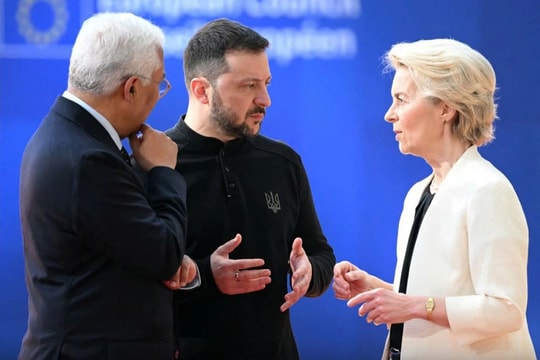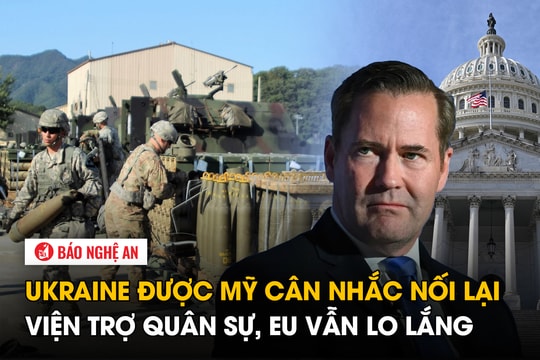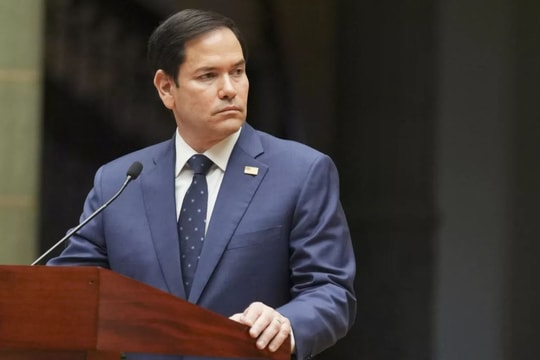How difficult will it be for Ukraine without intelligence from the US?
The US decision to stop sharing military intelligence with Ukraine will weaken Kiev’s offensive and defensive capabilities against the Russian military and increase pressure on Ukraine to accept a peace deal pushed by the Trump administration.

Earlier this week, the US suspended arms supplies – a major blow, but experts say Ukraine can still hold out for at least a few months. But the suspension of intelligence sharing has a more immediate impact, as it disrupts Ukraine’s ability to track and attack Russian soldiers, tanks and warships; while Ukraine’s other allies do not have the resources to fill the gap.
Why did the US stop sharing intelligence with Ukraine?
The decision to halt intelligence sharing – and military aid – comes after a tense visit to the White House last week by Ukrainian President Volodymyr Zelensky.
US President Donald Trump and Vice President JD Vance want Mr Zelensky to quickly accept a ceasefire with Russia – which now controls a fifth of Ukraine’s territory – and cede significant mineral rights to the US in exchange for future support.
The Trump administration believes that Ukraine has not shown enough goodwill in seeking peace with Russia, and the US has held separate talks with Moscow to try to end the war.
US officials said on March 5 that the withdrawal of intelligence sharing may only be a temporary measure to promote ceasefire talks, adding that discussions since the tense meeting at the White House have been more positive.
“We are reviewing and putting all aspects of this relationship on hold,” US National Security Adviser Mike Waltz said on March 5. CIA Director John Ratcliffe called the suspension a “pause.”
President Zelensky has repeatedly said he is ready to discuss peace, but any deal must provide adequate security for Ukraine. He has also publicly expressed regret over the tense meeting that was televised live at the White House.
Trump administration officials say the mineral deal will help strengthen US-Ukraine relations and make Russian President Vladimir Putin think twice before taking new actions against Ukraine.
How will the lack of intelligence from the US affect Ukraine?
The White House has not specified what aspects of intelligence sharing are being suspended. However, without US assistance – including crucial data collected from Elon Musk’s Starlink satellite system – Ukraine’s ability to strike weapons and other targets inside Russia would be severely impaired.
Ukraine’s attacks on Russian territory – which rely on long-range weapons supplied by the United States – are a key factor in hampering Russia’s capabilities and momentum. Ukraine relies on US intelligence to operate the US Army’s HIMARS and ATACMS rocket artillery systems.
Ukraine also needed intelligence from the United States for early warning and defense against Russian long-range missile and drone attacks. In the early days of the war, this intelligence helped Ukraine thwart Russia’s goal of a quick victory.
Before the new US restrictions were imposed, the pace of Ukrainian attacks on Russian territory – such as on ammunition depots – had helped reduce pressure on Ukrainian forces on the front lines, which analysts say is one reason Russia’s advance in eastern Ukraine has slowed in recent weeks.
Can the US share intelligence with Ukraine again?
In an interview with Fox News, US National Security Adviser Waltz said the suspension of intelligence sharing could be reversed if Mr. Zelensky showed President Trump that he was willing to negotiate peace with Russia on Mr. Trump's terms.
President Zelensky has said he wants to “repair relations” with Mr Trump, but that has not been enough to change the mind of the US – Ukraine’s biggest military backer since the Russia-Ukraine conflict broke out in February 2022.
Ukrainian and US officials are expected to hold talks next week in Saudi Arabia, Mr Zelensky said on the evening of March 6.
Meanwhile, leader Zelensky is looking for support from Europe, where most leaders have expressed disappointment with the Trump administration's decision to cut aid to a key US ally in the fight against Russia.
On March 6, European Union leaders held an emergency meeting to strengthen the bloc's security and ensure Ukraine remains protected.
It remains unclear whether the US suspension will affect intelligence-sharing relationships between Ukraine and other Western powers, including the four remaining members of the Five Eyes group – an intelligence-sharing alliance between the US, Canada, the UK, Australia and New Zealand.
French Defense Minister Sebastien Lecornu said in a radio interview on March 6 that France would continue to provide military intelligence to Ukraine. Meanwhile, French President Emmanuel Macron said he would discuss with EU leaders the possibility of using France's nuclear deterrent to protect Europe against threats from Russia.







